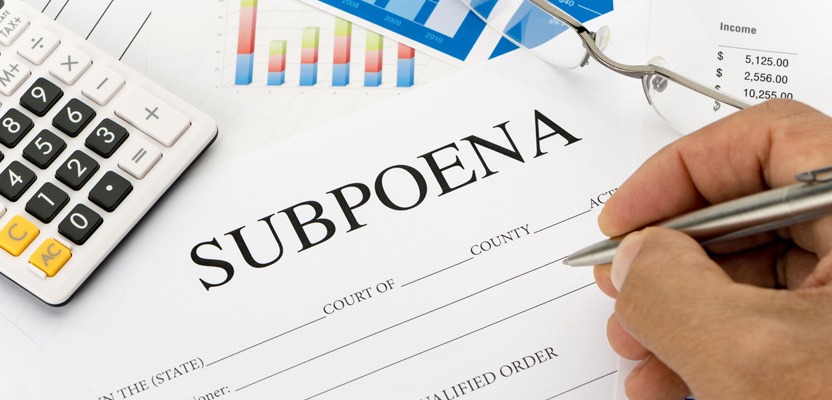Stay One Step Ahead: Mastering the Art of Subpoena Services
Subpoena services play a crucial role in the legal world, enabling the efficient gathering of evidence and ensuring the smooth progression of legal proceedings. As legal professionals strive to stay one step ahead in their practice, mastering the art of subpoena services becomes essential. In this article, we will explore the key aspects of subpoena services, their significance, and the strategies to optimize their utilization. From understanding the fundamentals to staying updated with the latest trends, we will equip you with the knowledge and insights to navigate the world of subpoena services effectively.
Table of Contents
Introduction
Subpoena services are an integral part of the legal process, enabling attorneys and other legal professionals to obtain crucial evidence and testimony from witnesses. By issuing subpoenas, legal practitioners can compel individuals to provide information or appear in court, ensuring a fair and just legal system. Understanding the intricacies of subpoena services is essential for every lawyer aiming to excel in their practice.
The Importance of Subpoena Services

Subpoenas hold immense significance in legal proceedings. They act as a powerful tool for gathering evidence, compelling witnesses to provide testimony, and ensuring a thorough examination of facts. Subpoena services are vital in both criminal and civil cases, as they facilitate the collection of evidence, discovery, and trial preparation.
Types of Subpoenas
Subpoena Duces Tecum
A subpoena duces tecum is issued to compel the production of documents, records, or other tangible evidence. It requires the recipient to produce the specified items at a designated time and place.
Subpoena Ad Testificandum
A subpoena ad testificandum is used to summon a witness to testify at a trial or deposition. It ensures the presence of the witness and their compliance with the legal proceedings.
Subpoena for Deposition
A subpoena for deposition is issued to compel a witness to provide pre-trial testimony. This type of subpoena allows attorneys to gather information and evaluate witness credibility before the trial.
Key Steps in Issuing a Subpoena
Identifying the Witness
Before issuing a subpoena, it is crucial to identify the witness or the individual possessing the required evidence. Thorough research and investigation can aid in locating the necessary parties.
Drafting the Subpoena
The subpoena must be drafted carefully, including all the essential details such as the court’s name, case number, witness information, and the specific documents or testimony sought. Precise and comprehensive drafting is essential for avoiding ambiguity.
Serving the Subpoena
Serving the subpoena involves delivering it to the recipient in compliance with legal requirements. It is advisable to engage a professional process server to ensure proper service and adherence to legal protocols.
Subpoena Compliance and Enforcement
Witness Obligations
Once served with a subpoena, witnesses are legally obligated to adhere to its requirements. This includes appearing at the designated time and place, providing accurate and truthful information, and producing requested documents or evidence.
Consequences of Noncompliance
Noncompliance with a subpoena can lead to legal consequences. This may include contempt of court charges, fines, or even imprisonment. Legal professionals must be aware of the potential consequences and take appropriate measures to enforce compliance if necessary.
Best Practices for Effective Subpoena Services
To master the art of subpoena services, it is crucial to adopt best practices that enhance efficiency and effectiveness. Consider the following strategies to optimize your subpoena service process:
Conducting Thorough Research
Before issuing a subpoena, conduct thorough research to ensure the accuracy and relevance of the requested information. This helps avoid unnecessary subpoenas and enhances the chances of obtaining the desired evidence.
Maintaining Clear Communication
Maintain clear and open communication with witnesses and other parties involved in the subpoena process. Clearly explain the requirements, address any concerns, and provide necessary instructions to ensure smooth cooperation.
Ensuring Timely Execution
Timeliness is key when it comes to subpoena services. Ensure that subpoenas are issued, served, and responded to within the required timeframes. This helps prevent delays in legal proceedings and maintains the momentum of the case.
Documenting and Organizing
Maintain proper documentation and organization of all subpoena-related activities. This includes keeping records of issued subpoenas, proof of service, and responses received. Well-organized documentation facilitates easy retrieval of information when required.
The Future of Subpoena Services
Technological Advancements
Technological advancements, such as electronic subpoenas and digital document management systems, are transforming the subpoena process. Embracing these advancements can streamline operations and improve efficiency.
Remote Subpoena Services
The rise of remote work and virtual hearings has extended to subpoena services as well. Remote subpoena services offer convenience and flexibility, allowing witnesses to comply with subpoenas without physical presence.
Privacy and Security Considerations
As subpoenas involve sensitive information, maintaining privacy and security is paramount. Legal professionals must employ robust cybersecurity measures to protect confidential data and ensure compliance with privacy regulations.
Conclusion
Mastering the art of subpoena services is crucial for legal professionals aiming to excel in their practice. By understanding the importance of subpoenas, familiarizing themselves with the different types, following key steps diligently, and adopting best practices, lawyers can stay one step ahead and optimize their utilization of subpoena services.
FAQs
Yes, a subpoena can be challenged or contested. If there are valid reasons to believe that the subpoena is improper or burdensome, a motion to quash or modify the subpoena can be filed with the court.
Yes, subpoenas can be issued to non-parties who may have relevant information or possess necessary documents. However, certain legal requirements must be met, and the subpoena must be served properly.
Yes, the scope of information that can be requested through a subpoena must be relevant to the case at hand. The information sought should be reasonably calculated to lead to admissible evidence or have evidentiary value.
Yes, attorneys can issue subpoenas on behalf of their clients. It is a common practice for attorneys to handle the subpoena process as part of their representation.
If you receive a subpoena, it is advisable to seek legal advice. An attorney can help you understand your obligations, evaluate any potential challenges, and guide you through the process.
When you file and serve a Request for Order (Form FL-300![]() ) or a Notice of Trial where you ask the court to make specific orders, the law does not require that the other party in the case go to the scheduled hearing (or trial). He or she may choose not to go. If the party has a lawyer, the lawyer can attend for his or her client.
) or a Notice of Trial where you ask the court to make specific orders, the law does not require that the other party in the case go to the scheduled hearing (or trial). He or she may choose not to go. If the party has a lawyer, the lawyer can attend for his or her client.
See More…







